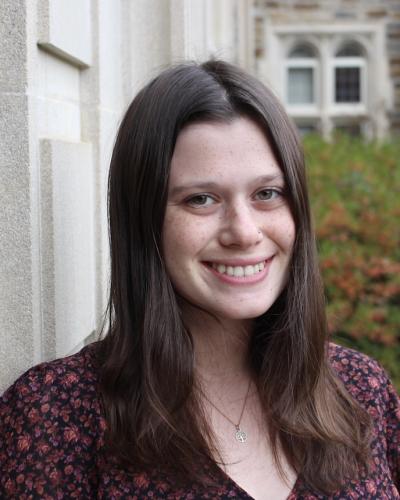Hometown: Ithaca, NY
Current Location: Durham, NC
Education: BA (Cornell, '22, Sociology)
Current Job Title & Employer: Associate in Research, Duke University, Department of Sociology (PI: Chris Wildeman)
What inspired you to pursue your degree in Sociology? I knew before coming to Cornell that I was interested in the criminal legal system in relation to structural racism in the United States, but I was unsure about how I would fold these interests into my coursework. During my first semester, I took “Introduction to Sociology” with Professor Bischoff and realized that Sociology provided a lens through which I could explore my interests while developing the skills necessary to work on research that contributes to our understanding of these issues and to our ability to address them with policy.
How has your Sociology degree helped you in your career? I currently work full-time with Professor Chris Wildeman in the Department of Sociology at Duke University. I draw upon skills and knowledge that I developed in my Sociology classes every single day. I am especially appreciative that the Sociology department allows undergraduates to take graduate-level statistics courses and that there were abundant opportunities to work as an undergraduate research assistant.
Is there a Cornell Sociology class you took that was particularly impactful/ stuck with you? A memorable professor? I took SOC 3010 and SOC 6020 with Professor Maralani. These classes shaped my career trajectory because I fell in love with quantitative methods and realized that academia could be a great fit for me in the long term. “Mass Incarceration and Family Life Course” with Professor Haskins also stands out as a particularly impactful class. This class helped me define my research interests and played a central role in shaping my senior thesis, which analyzed the geography of incarceration in New York State and its connection to racial residential segregation. I also have to shout out my wonderful thesis advisor, Professor Rich, and his course on Spatial Demography. I find spatial analysis fascinating and have been able to continue exploring this field by working part-time as a Spatial Researcher at UNC Chapel Hill.
What are some things you like most about your job? My job is exciting because each day is different. I get to work with fascinating data, such as the Project on Human Development in Chicago Neighborhoods (PHDCN) and have opportunities to interact with scholars that I have long admired. My boss, Professor Chris Wildeman, is a wonderful leader and mentor, and I am constantly learning from him. It’s incredibly rewarding to be working full-time on research projects that are intellectually stimulating and that will help expand our understandings of the causes and consequences of criminal legal system contact.
What is something you find difficult about your job? I am constantly gaining new skills for my job. While this can be difficult at times, it is also one of my favorite parts of my job because I enjoy problem solving and working through any initial confusion. I am grateful that I did a senior thesis because it gave me more confidence in my ability to teach myself new things.
Any advice on how to transition from college life/ grad school life to “real” life? I’m still transitioning myself, but I would say that it’s important to think about what kind of work fulfills you when you’re deciding on what to do after you graduate.





